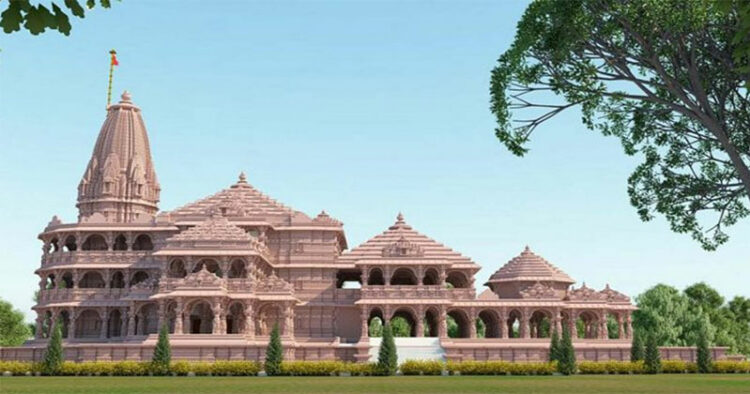The Supreme Court on February 3 was hearing a petition (Vineet Kumar Maurya versus Union of India and Ors) seeking to declare the land in Ayodhya where Ram Mandir is being constructed, as ‘Ayodhya Buddha Vihar’. The bench refused to entertain the petition and said that the issue raised by the petition has already been dealt with in the Ayodhya land matter. The bench was presided over by Chief Justice DY Chandrachud and Justice PS Narasimha.
The petition claimed that before the construction of the Babri mosque, there were Buddhist structures and artefacts at the location, which were wrecked to build the mosque (disputed structure). It also sought to declare the land as an archaeological site of national importance under Sections 3 and 4 of the Ancient Monuments and Archaeological Sites and Remains Act, 1958, and the Ancient Monuments and Archaeological Sites and Remains (Amendment and Validation) Act, 2010.
The petitioner argued that even though the Allahabad high court in its 2010 judgment observed that according to historians, reports of the Archaeological Survey of India and witnesses in the case, there were remains of stupas and pillars similar to Buddhist architecture at the site, no further finding was documented as to the claim of the Buddhist community. This happened because impleadment applications filed on behalf of members of the Buddhist community were dismissed, hence leaving the followers of Buddhism devoid of the opportunity to place their case before the high court.
Three years have passed since the Ayodhya issue was resolved by a five-judge Supreme Court Constitution panel, when this plea was filed. The court had unanimously entrusted the disputed site in Ayodhya with the construction of Ram temple and directed the Union Government to allocate a five-acre plot to the Sunni Waqf Board for constructing a mosque.
The petition first arose for hearing on July 3, 2018, before a division bench presided over by Justices Rohinton Fali Nariman and Indu Malhotra. Justice Nariman decided to withdraw himself from the matter. Later on July 23, 2018, a bench of Justices Ranjan Gogoi and R. Banumathi attached the matter with a batch of civil appeals which came up from the Allahabad High Court’s verdict in the Ayodhya matter. However, Vineet Maurya’s petition got de-tagged on a day when the five-judge Constitution bench reserved its judgment on the civil appeals against the High Court’s decision.
In the present matter, the bench asked the petitioner Vineet Maurya to either withdraw the petition failing which the bench will dismiss it. He then proceeded to withdraw the plea.




















Comments